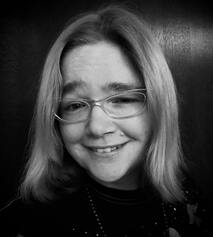- Home page
- Contact
- Images of Flight of Destiny
- Francis H Powell interviewed
- anthology for Palestine
-
meet the poets of Together Behind Four Walls
-
Andrew Tyler
>
- Interview with Seadeta Osmani
- Interview with Harry Weiss-Jones.
- interview with Cynthia Vespia
- Interview with Josiane Vincent
- Interview with Laura Mucha
- Interview with Chris White
- Interview with Carmina Masoliver
- Interview with Crysse Morrison
- Interview with Alan Durant
- Interview with B the Poet
- Interview with Arti RAI
- Interview with Neal Zetter
- Interview with Andrena Zawinski
- Interview with Trevor Millum
- Interview with Alison Brackenbury
- Interview with Toby Campion US
- Interview with Hadley James Hoyles
- Interview with Leela Soma
- Interview with Bernard Young
- Interview with Coral Rumble
- Interview with Sue Hardy -Dawson
- Interview with Dom Conlon
- Interview with D.L. Lang
- Interview with AF Harrold
- Interview with Monique Tell
- Interview with Stewart Taylor
- Interview with Cliff Forshaw
- Interview with Professor Elemental
- Interview with Marcus Christopherson
- Interview with Stephanie Davidson
- Interview with Brook Fischer
- Interview with Rita Rana
- Interview with Rhian Edwards
- Interview with Josh Louis Lingg
- Interview with Nina Zivancevic
- Interview with Armand Ruhlman
- Interview with Christine De Luca
- Interview with Hélène Argo
- Interview with Giselle Marks
- Interview with Thomas Stockley
- Interview with Giselle Marks
- Interview with January L'Angelle
- Interview with Martin Figura
- Interview with Dennis Copelan
- Interview with Laura Zuwa
- Interview with Iam Thandi
- Interview with Gail Meath
- Interview with Alun Robert
- Scottish Poets
- Jonnie Dalton
- Welsh writers
- Okorie Harrison
- interview with Meo
- interview with Mark Blickley
- interview with Christopher T. Dabrowski
- Ray Clark
- Derek Thompson
- Lynne Reid Banks
- Paula Claire
-
Andrew Tyler
>
-
Francis H Powell interviews with other authors
- Interview with J. C. Michael
- interview with Gavin Hill
- Interview with Morris E Graham
- Interview with Wally Runnels
- interview with John Nicholl
- interview with Rob Same
- interview with Elizabeth Oberbrunner
- Interview with Michael Wilkins
- Interview with Karina Kantas
- Interview with Justin Bienvenue
- interview with James Hershey Jr
- Interview with Brian Parker
- interview with Roma Gray
- interview with Rebecca Reid
- interview with Samual Friedman
- interview with Cynthia Vespia
- Mark Anthony Tierno
- Spotlight >
- interview with Jean Lowe Carlson
- download interview questions for authors
- Book Reviews
- Tiffany Alpen, Kindred (The Birthrite Series, #2)
- Together Behind Four Walls
- The Fish King and the Two Wise Ghosts

Tell everybody a little about yourself
I’m D.L. Lang. I served as the poet laureate of Vallejo, California from 2017-2019. I’m the author of over a dozen books of poetry. I was born in Germany, grew up in various states in the American south, and have lived in California since 2005. My website is poetryebook.com
Here are the various social links:
Instagram: http://www.instagram.com/poetryebook
YouTube: https://www.youtube.com/channel/UCfzrk60KwrpHPO52rVaJpMw
Amazon: http://www.amazon.com/author/dinahlang
Twitter: http://www.twitter.com/poetryebook
Facebook: http://www.facebook.com/PoetDLLang
Goodreads: https://www.goodreads.com/author/show/974992.D_L_Lang
Soundcloud: http://www.soundcloud.com/poetryebook
Was your creativity affected in any way during the lockdown? Did being lockdown make you feel inspired or deflated? Was it therapeutic doing creative work during lockdown?
Because of the shelter-at-home order many of the activities that I enjoy, but nevertheless pull me away from writing, disappeared from my life, leaving me with a void of time. Because National Poetry Writing Month occurred at the same time, I was able to write quite a few poems, and finished up my 13th book months earlier than expected. I wrote a lot of poems to cheer myself up, and in turn many of them brought comfort to others when I shared them online. It was kind of a setback in a way. I went from being primarily a stage performer to having to focus solely on online promotion again which isn’t quite as satisfying as being around people.
How did you occupy your time?
I consumed a lot of local news, binge watched old TV series I used to enjoy, read ebooks, listened to music, took care of my garden, and stocked up on food supplies with our meagre stimulus check. I focused on the more behind the scenes elements of being a writer such as scheduling blog posts and converting my books to ebooks. The performing part of my life largely dried up with many of my spoken word gigs being outright cancelled or postponed indefinitely. Occasionally, I would read for pre-recorded radio shows, or pop on to a zoom open mic.
What was the main thinking behind your poem submitted to Together Behind Four Walls?
My poem “We Long” is about missing the comfort of community and all the ways being continually isolated disrupts our ability to mourn and to celebrate. Essentially what I personally miss about life before lockdown.
What inspires most of your poems?
It’s about a five way split between memoir, politics, spirituality, nature poetry, and fictional storytelling. I write a lot from personal experience and more topical poetry on social issues. If I have a really powerful experience at a concert, out in nature, at a protest, or at synagogue, there is a high chance it will be translated into poetry. Poetry is how I make sense of the world, how I cheer myself up when I’m down, a way of bearing witness to history, and a vehicle for expressing spiritual and political insights.
Do you have any favourite poems from all the poems you have written?
I wrote a poem in 2015 called “Headline Antidote.” I’ve written 1,200 poems, but I’m still rather fond of that one. I’ve performed it at local demonstrations. It’s being turned into a song by the musician Greg “Grey” Perkins. It’s basically how in order to be a righteous person, sometimes you have to be a rebel, going against the grain to make change, and sometimes that’s the only antidote to the pain of world headlines.
Do you remember the first poem you ever wrote or one of the first?
I don’t remember the first as I’m sure I had to write a poem at some point in early elementary school, but such things end up recycled when you move around a lot as I did. Around age 10 or 11 I wrote song lyrics to a country song about travelling cowboys called “Ridin’ Along” and a rap about surfing called “Surf Clown.” The oldest proper poem was a limerick called “Larry and the Berry” which stemmed from an interest in the 3 Stooges. I mostly wrote short stories early on. When I was 13 the poetry really started flowing as I became more interested in music, specifically that of the 1960s, and it had a profound effect on the way I think and expanded my vocabulary.
Do you ever think of poems before going to sleep or just after waking up?
If I have not given myself the luxury of daydreaming, I will get lines coming to me as I am attempting to fall asleep. I find myself to be most productive either right when I wake up before any distractions or late at night after everyone is asleep.
Do you hand write poems or go directly on to your computer?
I used to carry around a notebook and handwrite everything, and then re-write as I typed them up. However, about 7 years ago I started having chronic pain in my wrists, so I primarily dictate, record myself, or use an iPad instead of a keyboard. It took some getting used to, but I actually write more this way.
Do you ever give up on poems you have started?
The only poems I ever discard are ones that I find myself disagreeing with later or if I was in a sore mood writing only to vent my feelings. Sometimes also I’ll chuck a poem if I think the person who inspired it would figure out it was about them because of a lack of subtlety on my part. Not everything needs to be published.
Do you do any other creative activities?
Over a decade ago I was the editor of the films The Hebrew Project and Liquid Wind. I created many of the early album covers and music videos for the aforementioned music artist Grey around that same time period. I was a film major in college and worked at a few television stations as a video editor and camera operator. Now my videos are quite limited to uploading my spoken word performances on YouTube. Before chronic pain derailed me, I also used to draw cartoons, paint, and I dabbled a bit in music as well. Now I’m primarily a consumer of other forms of entertainment, though I love attending sing-a-longs.
Do you only focus on poetry or do you also write prose?
I’ve had a little bit of prose published, but I am primarily a poet and spoken word performer at this point in my life. When I started out 25ish years ago, I was writing novels, short stories, memoir, and a western, but I find poetry to be more fulfilling as I can cover more ground in a book of 100 diverse poems than sticking to one solid narrative for 500 pages.
Do your poems ever have strong messages?
Yes. The kind of poetry that comes easiest to me are those of a topical nature, writing about social issues. It’s really only about 25% of my overall catalogue, but when the poem is a vehicle for a cause, I find that they flow quickly and passionately. It’s a long held tradition and part of the duty of a poet to witness the world and attempt to make it better, so I write about peace, social justice, economics, war, feminism, and the environment.
How would you describe the tone of your poems?
It varies from day to day. My poems are all over the place emotionally and stylistically. I can make you laugh, cry, become outraged, or uplift you. Words are powerful. Just this week alone I’ve had to be a political protest poet, a religious inspirational poet, and a children’s entertainer.
If you had to write a poem about yourself, how would it start?
I am the product of a happy accident,
the collision of different nations,
standing upon conflicting ancestries,
a soul left wandering through fires,
speaking truth and seeking harmony,
a voice raging after years of listening,
singing the tune of a world yet to come.


SUPPORT OUR KICKSTARTER CAMPAIGN FOR THE BOOK
www.kickstarter.com/projects/betweenfourwalls/together-behind-four-walls-an-anthology?fbclid=IwAR0DcnZFf-ubr4hNo4K-7FsVXUXxcoYFzC7bjQsgwsdW6QfvO3Hao__hnQE
